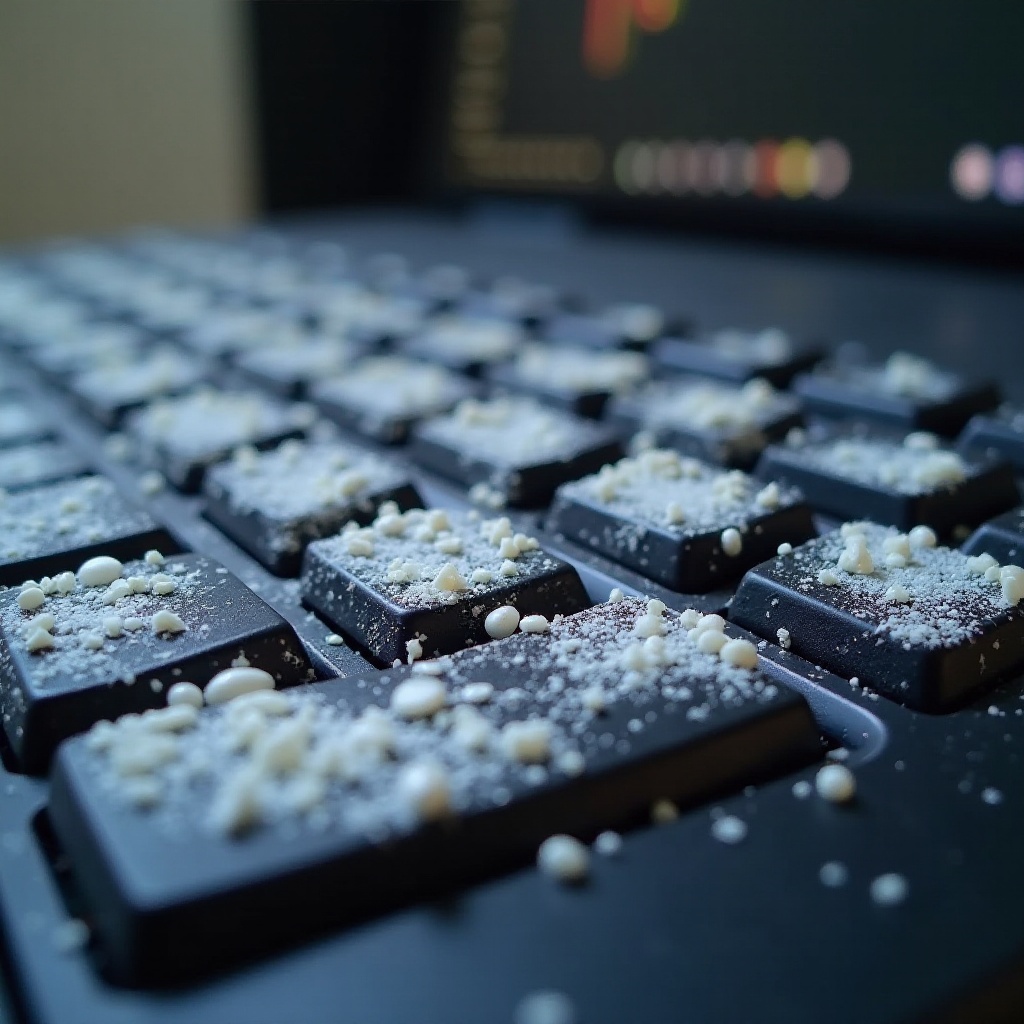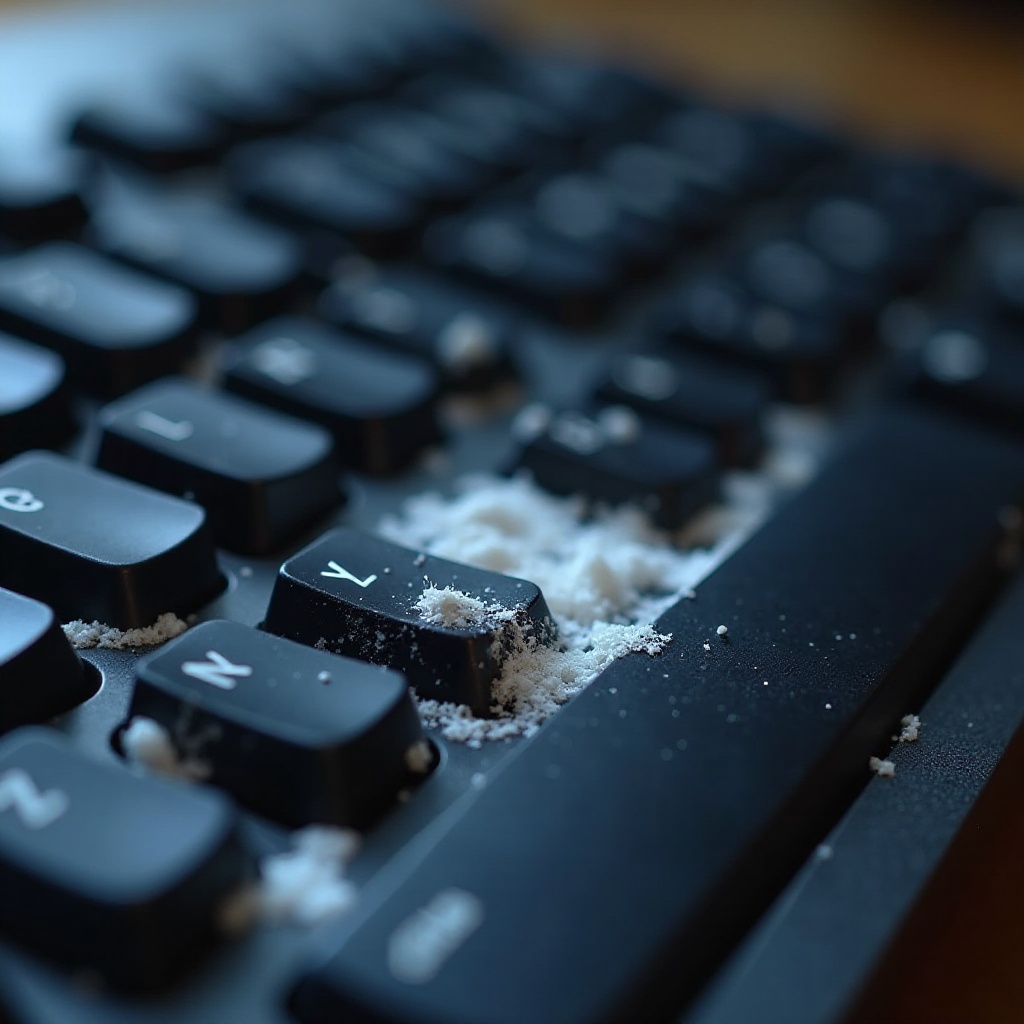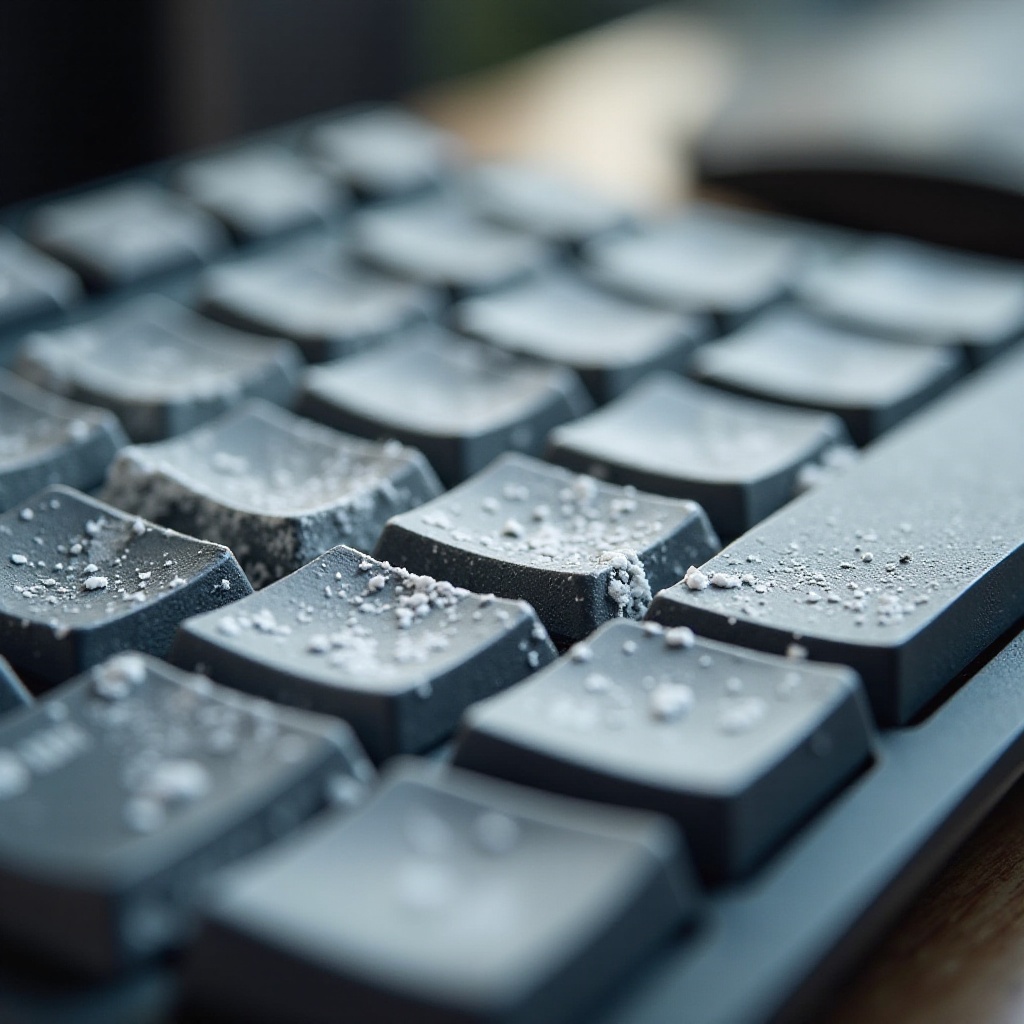Introduction
Keyboards play a critical role in our digital lives, and it’s common for them to accumulate white residue over time. This isn’t just an aesthetic issue; it can impact the functioning of your keys and, potentially, your productivity. Addressing this concern promptly ensures a more hygienic and effective workspace.

What Causes White Residue on Keyboards?
Recognizing the sources of white residue is the first step in effectively managing it. Several factors lead to this buildup:
-
Environmental Factors: Dust particles are everywhere and can combine with moisture to form a grime over keyboards, especially in humid environments.
-
User Habits and Skin Oils: As you type, natural oils from your skin transfer to the keyboard, attracting dirt and dust.
-
Cleaning Products and Their Impact: Sometimes, the very products used to clean can leave residues, especially if not used correctly or if they aren’t suitable for keyboards.
Once you’ve identified these causes, you can take steps to clean and maintain your keyboard without causing further issues.

Effective Cleaning Techniques for a Pristine Keyboard
The path to a clean keyboard starts with the right tools and methods. Follow these steps for effective cleaning:
-
Prepare Your Cleaning Setup: Ensure the keyboard is disconnected or turned off. Gather microfiber cloths, cotton swabs, and isopropyl alcohol.
-
Step-by-Step Cleaning Guide:
- Gently shake the keyboard over a surface to remove loose debris.
- Use compressed air to dislodge particles between keys.
- Lightly moisten a cloth with isopropyl alcohol and clean the keyboard’s surface.
-
With cotton swabs, reach the tricky areas between keys, paying attention to detail.
-
Recommended Cleaning Materials: Avoid abrasive materials and stick to alcohol-based cleaners and soft cloths to avoid residue or damage.
Proper cleaning can make a significant difference, but avoiding common errors is just as crucial.
Mistakes to Avoid When Cleaning Your Keyboard
Avoiding these typical mistakes can save you from damaging your keyboard or worsening residue problems:
-
Using Harsh Chemicals: Substances like bleach can damage the keyboard material and leave unwanted residues.
-
Improper Keycap Removal: Carefully remove keycaps, if necessary, using a keycap puller to prevent damage.
-
Ignoring Keyboard Types: Different keyboards, like mechanical versus membrane, have specific needs. Understanding these helps tailor the cleaning process correctly.
After successfully cleaning, focusing on preventative strategies will help maintain the keyboard’s cleanliness over time.
Preventive Measures for a Residue-Free Keyboard
Prevention requires consistent habits and strategic accessories:
-
Regular Maintenance Routines: Establish a weekly cleaning practice to inhibit buildup of oils and dust.
-
Protective Accessories and Covers: Consider keyboard covers as a layer of protection against dust and spills.
-
Ergonomic Setup Tips: Ensure your keyboard is positioned away from potential contaminants like food or drink, reducing contact with substances that might cause buildup.
Understanding maintenance can reduce the need for professional cleaning, but sometimes it’s unavoidable.
Is Professional Keyboard Cleaning Worth It?
There are times when professional services might be necessary:
-
Evaluating the Costs: Consider this option when regular cleaning fails to remove buildup or if DIY methods affect performance.
-
When to Consider Professional Help: If persistent residue or malfunctioning keys occur despite your efforts, it might be time for professionals who use advanced techniques for comprehensive cleaning.
Consistent care and maintenance are key, and with the right approach, you’ll maintain a clean and functional keyboard.

Conclusion
Keeping your keyboard clean enhances both its appearance and efficiency. By understanding what causes white residue and learning the proper cleaning and preventative methods, you ensure a healthy, productive workspace. Implementing regular cleaning routines and using protective measures can minimize residue buildup.
Frequently Asked Questions
How often should I clean my keyboard to prevent residue?
Regularly clean your keyboard once a week to reduce residue buildup and maintain hygiene.
Can I use household products to clean my keyboard?
Use caution. Alcohol-based cleaners are safer and avoid harsh chemicals that can damage surfaces.
What should I do if the residue persists after cleaning?
Ensure correct cleaning methods. If residue persists, consider professional cleaning for persistent issues.
